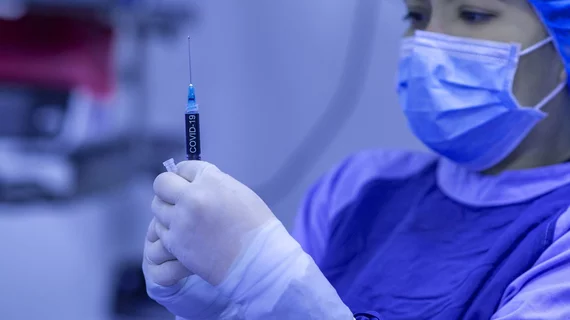Healthcare companies struggle with staff vaccination mandates
Several studies reveal that a significant portion of the healthcare workforce has some qualms about getting a Covid-19 vaccine, and healthcare companies are struggling with the decision to mandate vaccinations for their staff.
That’s according to a recent report from The Washington Post, which dived into the nitty-gritty of requiring coronavirus shots.
March 1 marked the first time a senior care facility required its staffer get the COVID-19 vaccine, but more such facilities and healthcare operators are likely to follow. The decision, which was made by Virginia-based Silverado, likely caused some friction and set off alarm bells elsewhere, as a portion of healthcare workers have noted they oppose such mandates.
Last month, a survey of healthcare workers from The Post and the Kaiser Family Foundation found as many as 1 in 3 healthcare workers say they were skeptical of the COVID-19 vaccines currently available. There are three vaccines available in the U.S.––from Pfizer, Moderna-BioNTech and Johnson & Johnson.
The question of whether healthcare facilities should require vaccination for their workers is a tricky one, although more are cracking down. The Houston Methodist health system recently required its staff to receive at least one dose of a vaccine-–or risk being laid off, The Post reported.
See the full story below:

